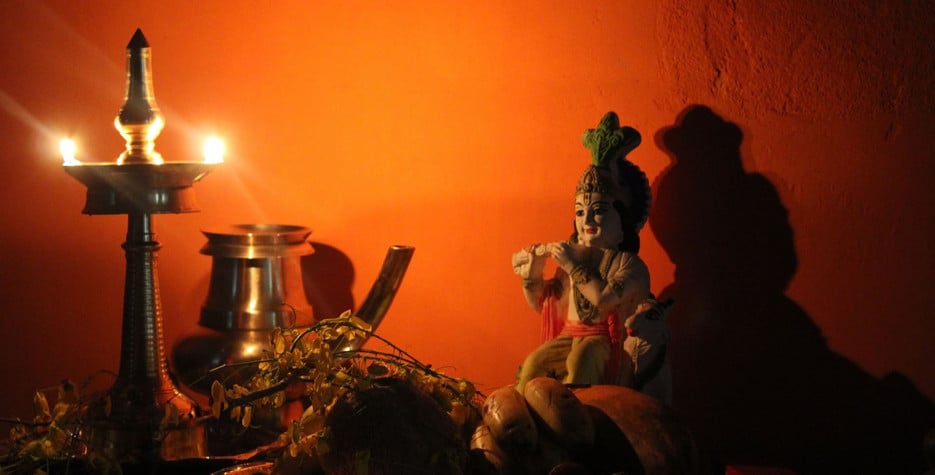When is Vishu?
Vishu is a regional public holiday in the southern Indian state of Kerala on April 14th or 15th each year, the first day of the Tulu calendar.
This is an important festival celebrated with much fanfare and energy in all parts of Kerala. It is considered a festival of light and fireworks.
Traditions of Vishu
This spring festival is second only to Onam in festival popularity in Kerala.
It takes place on the first day of the Malayalam month Medam (mid-April), which marks the traditional Spring Equinox when the duration of day and night are equal. Indeed, in Sanskrit Vishu means equal. The astronomical Spring Equinox takes place on March 20th or 21st. The reason for the difference is that the sun rising in the constellation of Aries was used at the way of observing the equinox. Due to the wobble of the earth, this date shifts over the centuries, showing the great age of this festival.
For Vishu, a display is created called the Vishukanni, which consists of flowers, vegetables, fruits, traditional lamp, metal mirrors, coins, rice, holy text and other items placed inside a metal vessel called uruli. A lighted bell metal lamp called nilavilakku is also placed alongside. The Vishukanni is placed in homes and temples in front of idols of Hindu deities, usually of Lord Vishnu and Lord Krishna.
Note this display has similarities to another spring equinox display - the 'haftseen table' which forms part of the Persian New Year festival of Novruz.
On the day of Vishu, the mother or the eldest member of the family wakes up early to light the lamp after a ritual bath. She then wakes up each family member at a time, covers their eyes with her hands and guides them to see the Vishukanni for Lord Krishna's blessings. The belief is that the first sight - as a reflection through the metal mirror - will bring prosperity and good luck in the coming year.
Several legends surround Vishu. In one version Vishu is the day when Lord Krishna killed a demon called Narakasura. In another version, Vishu is celebrated as the return of Surya Dev, the sun god. According to folklore Ravana, the demon king was stopping Surya Dev from rising in the east. It was on the day of Vishu, after the death of Ravana (spoiler alert - he gets killed by Rama during the festival of Dussehra), the sun started to rise from the east.


